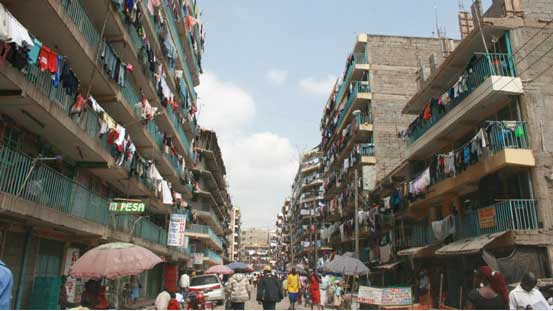
NAIROBI, KENYA: The government named affordable housing as one of its key priorities in a four-point agenda. According to statistics from the Ministry of Transport and Infrastructure, the housing shortage in the country stands at 1.85 million houses, with annual shortage of more than 200,000 units.
“Under my Big Four plan, for the same amount of money you pay today as rent, you will be able to own your home, and it will be a decent house, built to modern standards,” President Uhuru Kenyatta said during his swearing-in for a second term on November 28, 2017.